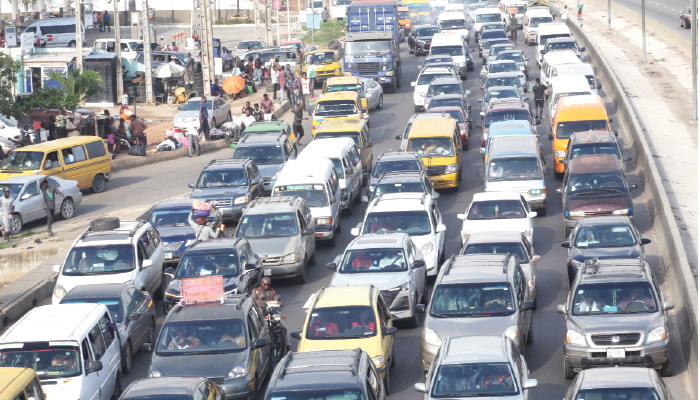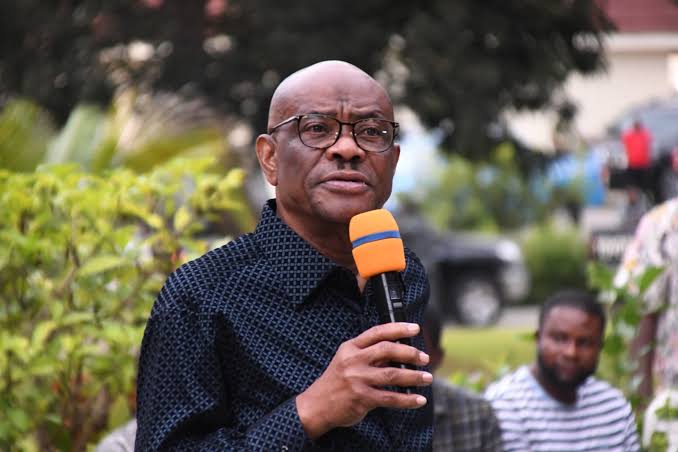
The Delta State government has stressed that Agriculture as a critical backbone for food security will take center stage in the economic development of the State.
The newly appointed Commissioner for Agriculture and Natural Resources, Barr. Val Arenyeka revealed this in his maiden meetings with the Supervising Permanent Secretary, Mr. Augustine Oghoro; Special Assistant to the Commissioner, Mr. Uche Egbuche;Directors in the Ministry, as well as a separate meeting with Heads of Parastatals under the Delta State Ministry of Agriculture.
The meetings, which were held at the Ministry’s headquarters at Prof. Chike Edozien Secretariat in Asaba, aimed at interacting with management staff and gathering information on the activities and mandate of the various sectors.
The Commissioner maintained that the State government’s vision for Deltans through the Ministry and its Parastatals was to ensure food security, job creation and economic development for Deltans, bearing in mind the importance of a well planned and executed Agricultural policy in any developing economy.
Areyenka said that agriculture had been relegated to the background, giving rise to inadequate food supplies, hunger, food prices inflation and youth joblessness across the country while emphasising that “if agriculture was pursued with the same vigour and interest as is being done in crude oil exploration, Nigeria would be self-sufficient”.
Barr Arenyeka charged the Ministry to, “as a matter of urgency, key into the vision of pulling out agriculture from the doldrums to an enviable position of sustainable food production and security in the State,by putting modalities in place to actualise the vision,declaring that he would do his part to do the right things in achieving the vision of making Deltans have access to adequate and affordable food”.
He noted with nostalgia his childhood days when his father worked briefly as an agricultural extension staff, and how some exotic animals like rabbits, and others such as poultry were reared, while many family members and communities engaged in backyard farming to meet daily needs.
The agriculture commissioner advocated the idea of aquaculture model for fish farming through train-the- trainer for communities as a means of encouraging local farmers to shift from the ancient and traditional method of fish farming, saying that though aquaculture was a “huge undertaking,” but a better way to increase fish production on a regular basis.
The Commissioner discountenanced the idea of “giving loans, in monetary terms, to farmers, as it has been abused over the years with only less than 10% of such loans recovered.” He noted that many who took such loans did not use them for farming purposes.
He proffered that government’s support to genuine farmers would be through providing the enabling environment, supply of agricultural inputs and facilities.
He equally called for the list of all abandoned agricultural facilities across the State to enable the Ministry advertise them to interested and genuine farmers on repair-use-and-maintain basis on behalf of government, as he averred that “government has no business doing business.”
“When agricultural facilities or equipment are not constantly put to use, they deteriorate fast.”
He stated that the ‘repair-use-and-maintain’arrangements of the abandoned facilities would be no financial obligation to the government and would be a way to encourage genuine and interested farmers, as well as ensure that the facilities were used for what they were meant for, and properly maintained for an agreed period of time.
Barr. Arenyeka said further that proper documentation, monitoring and control, especially in the Livestock sector, would be taken seriously in order to checkmatethe transportation of infected as well as dead animals into the State as has been observed in the past.
While calling on the support of all staff to achieving the mandate of the Ministry in providing adequate food supplies for Deltans, the Commissioner assured them of his commitment to any issue concerning food security.
The Supervising Permanent Secretary, Mr. Augustine Oghoro, while welcoming the Commissioner, described him as “a consumate businessman, astute Politician with a vision towards food security management in the State”‘.
He pointed out that the Commissioner’s appointment was timely at a period when the country was inundated with many issues associated to what he referred to as“stomach infrastructure”, even as he recalled Maslow’s Hierarchy of Needs, stating “food as the basic and first on the list of needs for humans, followed by shelter, security, while anything outside these was simply for ego or status’ sake.”
Mr. Oghoro stated that the Ministry was a critical sector that concerned the wellbeing of the people of the state, reiterating that if agriculture was given “equal pursuit as the pursuit for crude oil, Nigeria would be food sufficient”.
He expressed optimism that the appointment of the Commissioner would turn things around positively for the Ministry and assured the Commissioner of “Management and staff support to take the set vision of repositioning agriculture and food security in the State to a new level.”
He equally enjoined all staff to be dedicated to this new vision towards food security in the State, so that at the end, staff could, together, proudly raise their heads high to say they really gave their very best to make agriculture and food security a crucial mainstay of the State.
Earlier, the Directors and Heads of Parastatals took respective turns to brief the Commissioner of the mandate and activities of their various departments and sectors, even as they listed their challenges, such as lack or shortage of funds, utility vehicles, office space and equipment, shortage of staff, dilapidated field offices, insecurity, among others.
Highlight of the maiden meetings was the presentation of reports to the Hon. Commissioner and conducting him round the Ministry in the company of the Supervising Permanent Secretary, Mr. Augustine Oghoro., Commissioner’s Special Assistant, Mr. Uche Egbuche, and Directors




